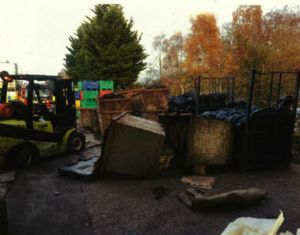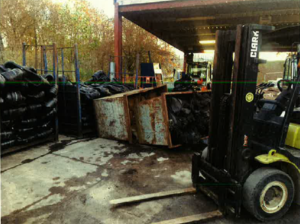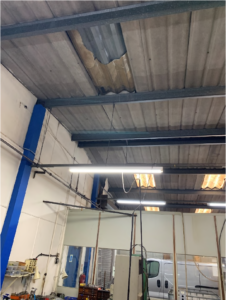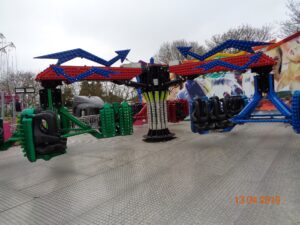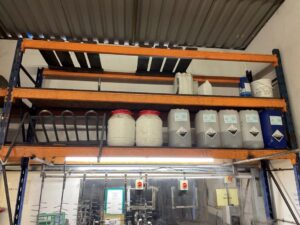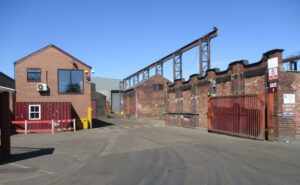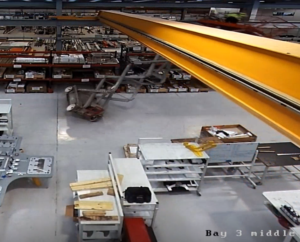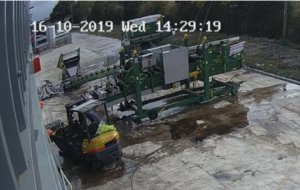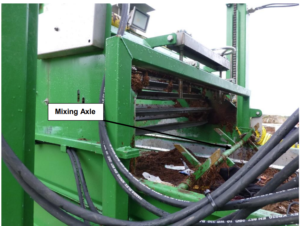Waste management company fined after worker suffers burns to body and face
A worker suffered burns to his face and body after the crowbar he was using came into contact with a live electrical conductor.
The Health and Safety Executive (HSE) prosecuted a waste management company following the incident on 14 July 2021.
The man was moving heavy duty electrical cables with a metal crowbar on a mobile elevating working platform when the bar came into contact with the live conductor, causing an electrical explosion at Copper Hill industrial estate, Ermine Street, Barkston Heath, Lincolnshire.
As well as suffering serious burns, the explosion caused the man to fall from the platform and sustain a broken left arm, fractured ribs and dislocated kneecap.
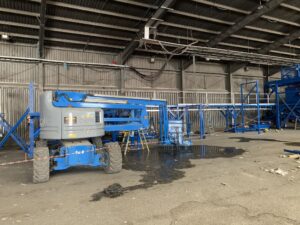
The worker had been contracted by New Earth Solutions (West) Limited, trading as Mid UK Recycling, to work at the firm’s recycling plant at Copper Hill industrial estate.
An investigation by HSE into the incident found this task was not part of the normal workload for the injured worker and that he had not received any training with regards to undertaking electrical work. The task had not been properly planned nor risk assessed and the electrical cables were not isolated before work began. In addition, the level of supervision provided was inadequate and safety devices on the electrical supply had been set inappropriately, prioritising continuity of supply over safety of the electrical circuit.
HSE guidance can be found at: Electrical safety – HSE.
New Earth Solutions (West) Limited, of Station Road, Caythorpe, Grantham, Lincolnshire, pleaded guilty to breaching Section 3(1) of the Health and Safety at Work etc. Act 1974. The company was fined £200,000 and ordered to pay £12,466.60 in costs at Lincoln Magistrates’ Court on 10 May 2024.
HSE inspector Tim Nicholson said: “This incident could so easily have been avoided by properly planning the task, ensuring that all workers involved were suitably competent and making sure that electrical conductors were isolated before the work began.
“Companies should be aware that HSE will not hesitate to take appropriate enforcement action against those that fall below the required standards.”
This HSE prosecution was brought by HSE enforcement lawyer Jayne Wilson and supported by HSE paralegal officer Ellen Garbutt.
Notes to Editors:
- The Health and Safety Executive (HSE) is Britain’s national regulator for workplace health and safety. We prevent work-related death, injury and ill health through regulatory actions that range from influencing behaviours across whole industry sectors through to targeted interventions on individual businesses. These activities are supported by globally recognised scientific expertise. hse.gov.uk
- More about the legislation referred to in this case can be found at: legislation.gov.uk/
- HSE news releases are available at http://press.hse.gov.uk
